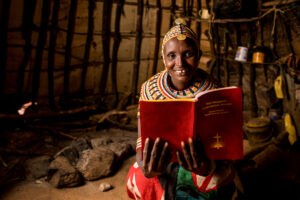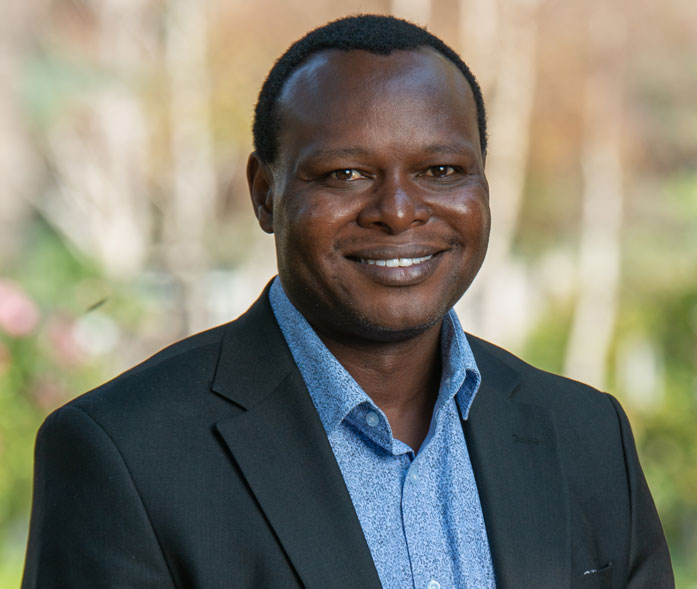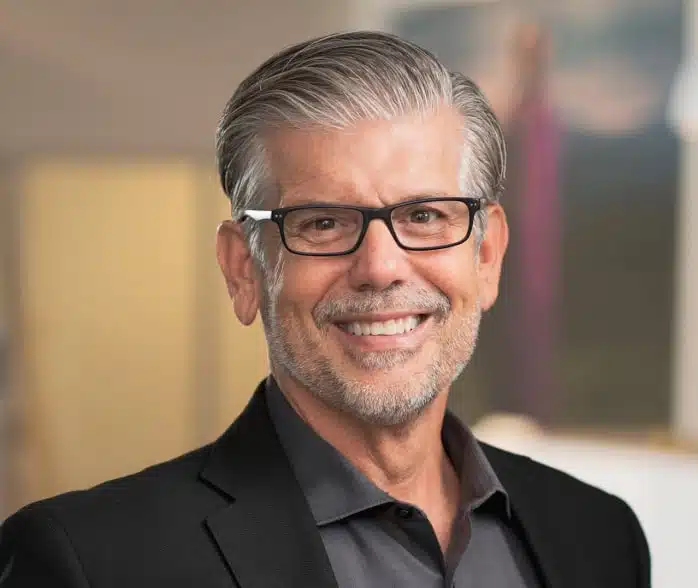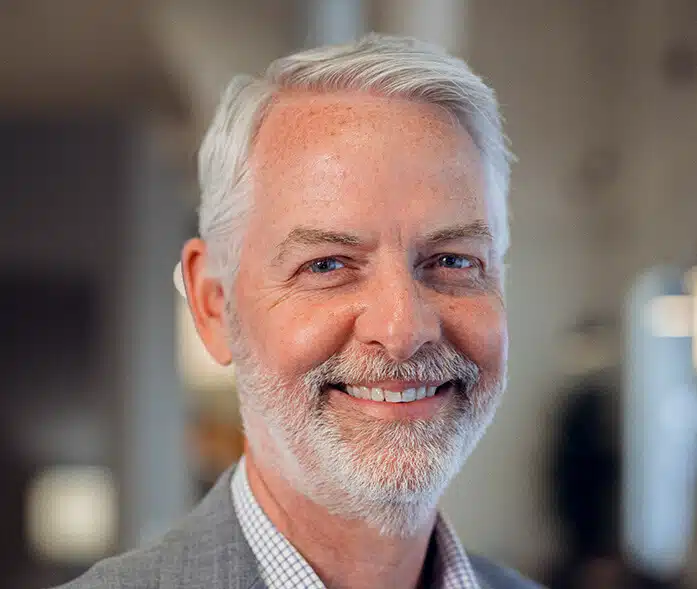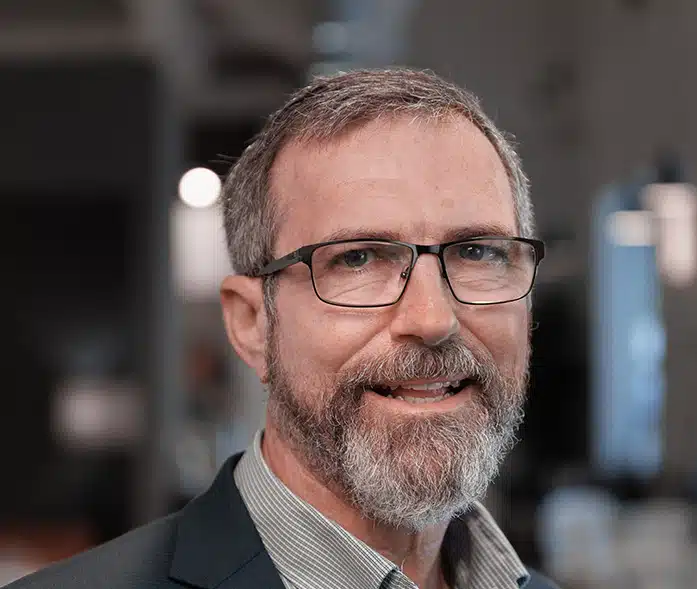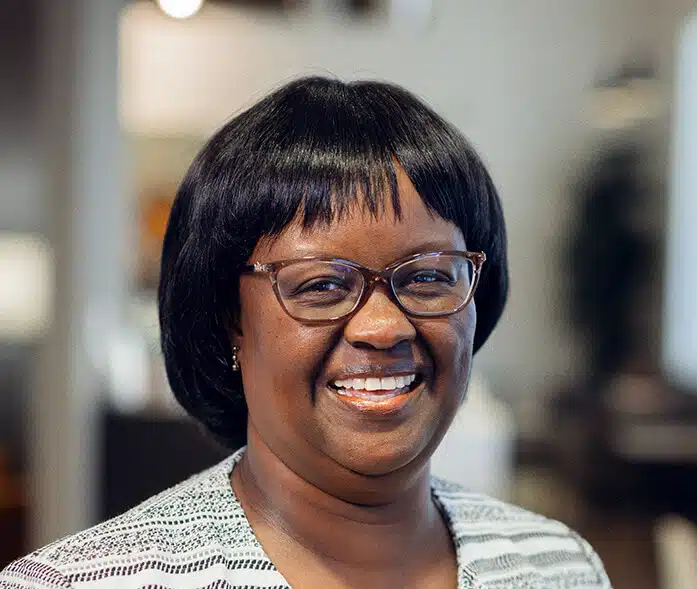Seed Company managing editor Kim Driggers (pictured above) reflects on how the recent arrival of the complete Bible in East Slovak Romani is transforming lives. The Roma people, often misunderstood and forgotten, are now learning of their great worth in the eyes of God.
The church smelled like cigarettes.
“Are the people allowed to smoke during worship?” I asked Marek Olah, the pastor of this small Roma congregation in Jarovnice, Slovakia, located on the edge of the largest Roma settlement of more than 7,000 people.
Marek is Roma himself, so he smiled sadly at my question and answered it from his past personal experience: because many Roma don’t have electricity for heat, they must resort to burning wet wood collected from the forest. Their clothing absorbs every bit of the excessive smoke permeating their cinder block homes.
I was stunned by the odiferous affront that Sunday morning, but equally grateful for what it provided—an introduction to this people group’s plight, but even more so the aroma of hope rising from their tried and tested faith.
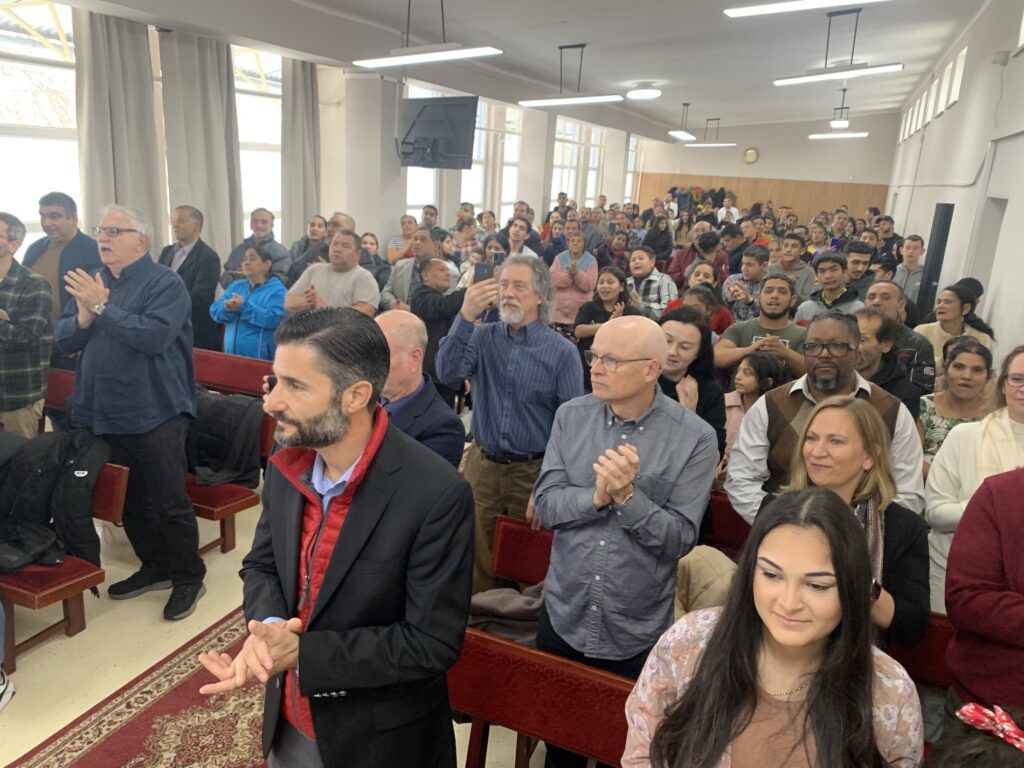
Fighting to Overcome the Past
In the 1300s, Roma people migrated to Europe from South Asia. But by the late 1400s and 1500s, some countries enacted laws for their expulsion. Governments rejected them for not settling and therefore not paying taxes. Churches rejected them for their fortune-telling practices. Many Roma were reduced to slavery, and from 1937 through the end of World War II, approximately 500,000 Roma died in concentration camps.
Today, most Roma still wrestle with discrimination from the majority culture around them. Negatively referred to as “gypsies,” they are forced to live in settlements on the outskirts of towns. Most of the Roma in Slovakia live in the mountainous eastern part of the country, but even in larger cities, they are segregated. Through centuries of ridicule and rejection, a strong message has been sent, and received: Get out. You don’t matter here.
It’s no wonder the Roma have struggled to value their language and culture, so much so that initial engagement with the full New Testament, completed in 2014, proved challenging. But Scripture does not return void, and over time, the gospel spoke a new word over them: You do matter, and you are important to the God who made you and loves you—just the way you are.
Looking Forward to a Hope-Filled Future
Flash forward to 2023. The Roma knew they needed the full counsel of God, and upon finally completing the Old Testament, they wasted no time in rejoicing over what they now hold in their hands: the complete Bible in their East Slovak Romani language.
Watch their dedication celebration now, then read on to discover the events leading up to it!
I had the privilege of celebrating with them during multiple festivities the weekend of December 9–10, 2023. Saturday evening’s worship service at Marek’s church was the kickoff event, followed by a dinner fit for kings. Catering from a chain restaurant would be the norm for a similar event in the United States, but in Slovakia, the Roma take hospitality to another level. Traditional meats, stews, side dishes, and desserts were lovingly hand-prepared by Marek’s wife and several women from the Jarovnice settlement.
The impressive buffet they generously prepared paled only in comparison to the intimate dining area opposite it. Several picnic tables, placed end to end, were adorned with Christmas decorations and the soft glow of tapers. Green velvet armchairs, so close they were touching, surrounded the tables and encouraged lively conversation among the guests—many associated with the East Slovak Romani project, but many more from other Roma communities in Europe who simply longed to celebrate this momentous occasion with their brothers and sisters in Christ. For me, it was a Revelation 19:9 moment—enjoying God’s goodness now while fully recognizing it as a foretaste of the meal to come, the eternal wedding feast of the Lamb!
The following morning was a Sunday, and the crowded little church came alive yet again, buzzing with excitement over Marek’s announcement: the Roma Bible would be dedicated at 4 o’clock that afternoon in Sabinov, a neighboring village that boasts the largest Roma church in Slovakia. Marek was also lead translator on this project, and as the country’s national director for The Word For The World (TWFTW)—the key field partner managing the effort—he was intimately involved with ensuring his people would receive the full counsel of God in their heart language of East Slovak Romani. Indeed, this was justification for a full-weekend party!
Much like the lively worship enjoyed on Saturday night, music filled the crowded room with reverent praise, ushering in a spirit of gratefulness that continued into the afternoon’s main event. More than 500 people attended the dedication, as did thousands more online, including East Slovak Romani speakers in Czech Republic, Austria, Germany, France, Belgium, England, Ireland, and even Canada. Bibles were prayed over, project leaders were recognized, and God was given all the glory for this project that, according to Field Project Manager Jay Ellis, represents the Lord’s delight in his “masterpiece,” the Roma people.
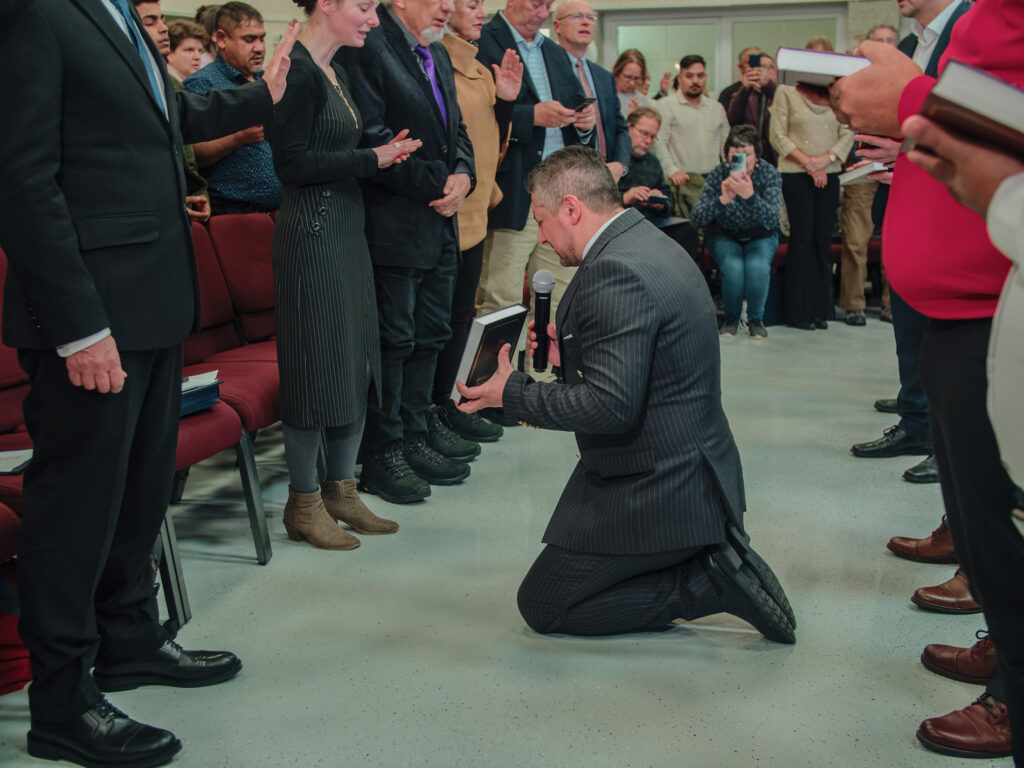
Finding Happiness in Jesus
Of all the sermons preached and words shared over the weekend, the message that perhaps hit me hardest was the one given by Miki Kamberovič on Sunday morning in that smoky sanctuary. Miki is a pastor in Serbia, a TWFTW advisor, and a member of the board of directors for RomaNetworks.org.
“Who wants to be happy?” Miki asked the crowd. Pulling several lessons from Genesis 22, Miki spoke of Abraham’s faith and how forgiveness, obedience, and reliance on the Lord all lead us to Him and thus “the source of happiness.” He ended with a charge to the Roma:
“God knew Abraham’s name. He knows yours too. He is calling you! What’s your answer? How many times must God call our name before we hear Him? Music and news are happening all over the world right now, but we don’t hear it because we need the right antenna. God’s Word is a strong antenna. Use it!”
And that they are! The Sunday following the dedication service, 100 Roma were baptized: 70 in the Sabinov church—pastored by Marek’s brother Rino—and 30 in the Jarovnice church. Bible readings in Romani are now a regular part of church services, and Roma pastors are requesting more Bibles. Romani speakers are proudly posting photos on Facebook, showing friends that they can now read God’s Word for themselves.
Starting Anew with Heart Language Scripture
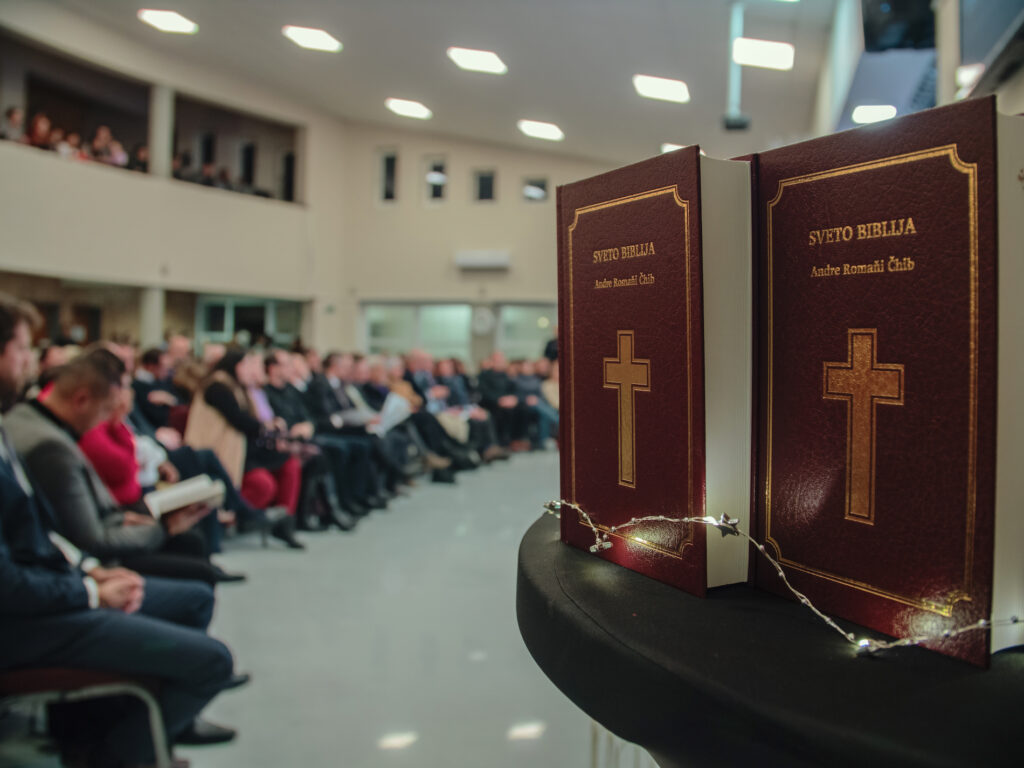
At the dedication celebration, Field Project Manager Jay Ellis spoke about the meaning of the word “commencement.” Often associated with the ending of a season, like one’s high school or college years, the word actually means “beginning.”
“This is not the ending; this is the beginning of what God will do! This will be the beginning of God’s work in and through you to the Romani people,” Jay declared.
To God be the glory for His transformative work! Being witness to this new start for the Roma was the experience of a lifetime, one that I won’t soon forget. As part of Seed Company’s communications team, I’ve followed this project for more than five years, and the experience of its culmination did not disappoint. Indeed, a new beginning is before the Roma, and it has inspired a new beginning in me as well. The above picture of me with Roma children is now sitting on my nightstand, a constant reminder that there is no greater beginning than the next generation, and the privilege it is to pray for that next generation. May we never grow slack in interceding not only for those without God’s Word, but those who finally have it and can now move forward in ever-deepening faith. For the Roma, may it ever be so!





